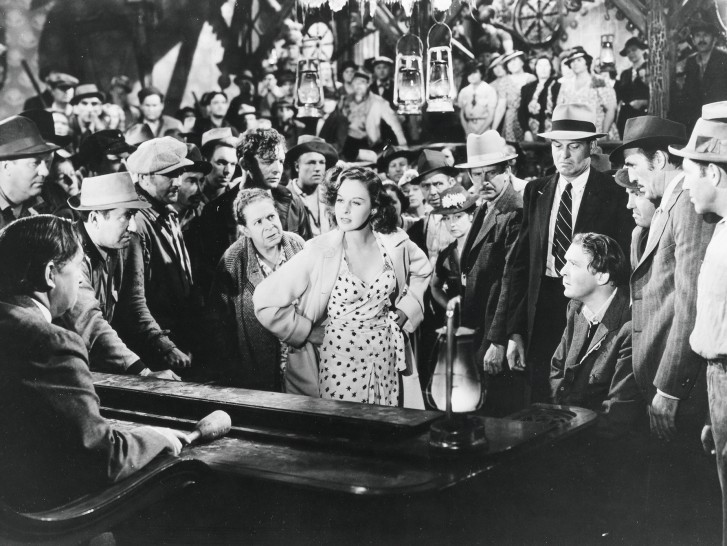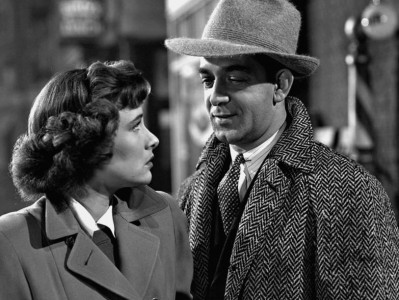
Among the Living
Bewitched
Among the Living is prime Southern Gothic. Twins, one who left town long ago and returns only for their father’s funeral, while the other is secretly locked away in the family mansion after being driven mad by their mother’s screams for help. The latter will soon walk among the people of his town, a creature too sensitive for a world where violence seems second nature and a mob the preferred way of community. One can only marvel at Stuart Heisler’s genius. How elegantly he introduces a theme that would come to dominate his oeuvre, as evidenced by The Biscuit Eater (1940), The Negro Soldier (1944) or Storm Warning (1951): that of worlds divided (townsfolk having to watch the funeral through an iron-wrought gate; the mad son being shushed away into the mansion’s vast garden so as to not embarrass the Decent People congregated for the burial); the way the estate is turned into a maze of shadows; his interest in women that will later carry masterpieces like Smash-Up: the Story of a Woman (1947) or The Star (1952)—all ending with a deft tribute to Fritz Lang’s M after having taken a cue or two before from James Whale’s Frankenstein (both 1931), with sharp intelligence and wit. – Olaf Möller
Bewitched is an audaciously stylized psychodrama that marked the keenly anticipated directorial debut of Arch Oboler, a brilliant enfant terrible of radio drama whose popular horror series Lights Out and scandalous Adam and Eve parody—with none other than Charlie McCarthy and Mae West in the biblical roles—earned him regular comparison with Orson Welles. Oboler accepted the inevitable invitation to Hollywood, where he worked successfully as a screenwriter before directing this striking adaptation of his own celebrated radio play Alter Ego. “There are dark corners of the human mind we know nothing about” confesses an eminent psychiatrist, as Bewitched flashes back to study the strange symptoms of his most enigmatic patient, a beautiful bride-to-be possessed by a dark inner voice that compels her to violently reject and destroy her glittering debutante life by fleeing to the other side of the tracks and adapting a new but dangerously unstable identity. Especially effective in viscerally evoking the young woman’s struggle is the moody score by underappreciated Polish émigré Bronislau Kaper and the embittered inner voice hissed with demonic fury by radio actress turned noir vixen Audrey Totter.










































